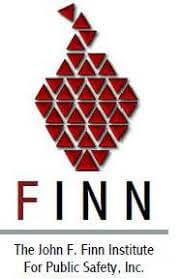Business Services > Legal Services
There is no domestic function that is more fundamental to democratic government than the administration of justice. Public safety is essential for individual well-being and for community development and prosperity. The Institute works in two ways to advance public safety. First, we work with criminal justice agencies to organize and interpret existing evidence about what works, and translate that evidence into effective interventions in local contexts. Second, we conduct research on criminal justice strategies, programs, and practices to deepen our understanding of what works.
Crime and disorder have far-reaching effects, and the investment in research on how to treat these social ills is not commensurate with the toll that they take on society’s well-being. An estimated 23 million crimes were committed in the U.S. in 2007 alone, including 5.2 million violent crimes. Each of those crimes involved one or more victims, and many more people were the vicarious victims – family members and friends of the victims. Tens of millions of people – mainly economically disadvantaged households – live in urban neighborhoods with not only high levels of crime, but also with high levels of neighborhood disorders: abandoned cars, prostitutes, graffiti, street harassment, vacant lots, gang activity, and so forth. These public safety conditions are constant “signs of crime” that make residents and others fearful, discourage the use of public spaces and amenities, and more generally detract from the quality of life. These conditions deter private investment, leading instead to decline and decay. And in many of these same urban neighborhoods, people are distrustful of police and other legal institutions. Victims and witnesses decline to cooperate with law enforcement agencies, lacking confidence in their capacity to offer protection. In these neighborhoods, the law is an abstraction and the social order is regulated by threats and violence. These dire circumstances have profound consequences for many people, and yet effective treatments for these conditions are not well understood.
Existing and newly developed evidence must be applied by criminal justice practitioners, but the administration of criminal justice relies less than it could on scientific evidence and systematic data. Writing in The New Yorker magazine in 2001, Atul Gawande observed that while “science finds its way to the courthouse in the form of ‘expert testimony’ forensic analysis, ballistics, and so forth … the law has balked at submitting its methods to scientific inquiry.” He went on to suggest that “scientific experimentation, which transformed medicine in the last century, could transform the justice system in the next.” It is toward this transformation that the Finn Institute works. The police have been more receptive to such experimentation over the past 30 years than have some other components of the justice system, but even so, as Gawande points out, “in medicine, there are hundreds of academic teaching hospitals, where innovation and testing are a routine part of what doctors do. There is no such thing as an academic police department or a teaching courthouse.”
We work hand-in-hand with criminal justice agencies to bring social science findings to bear on the development of operational strategies, organizational structures, and management practices, to enhance the extent to which decisions are data-driven, and to conduct research that offers lessons about effective innovations to agencies across the country. This work has coupled our scientific expertise with our concern with practical issues. The Institute’s staff knows how to conduct research that meets scientific standards, and to adapt social research methodologies to real-world settings; they have designed and implemented studies of varying scales, from local to national, and that have employed a wide range of research methods, including surveys of various kinds, in-depth interviews, in-person observation, and statistical analysis of many types. But in addition, the Institute’s staff is committed to putting its strong blend of theoretical knowledge and research to use in generating findings that are useful to policy-makers and practitioners, framing the issues that confront law enforcement and distilling implications for policy and practice. The Institute does not use criminal justice agencies as laboratories for research; the Institute uses research as a source of guidance for criminal justice agencies.

Details
- Last Updated
- 08/Sep/2024
- Contact
- Robert E. Worden, Ph.D.
- [email protected]
- Phone
- (518) 456-6323
- Website
- http://finninstitute.com
- Address
- 421 New Karner Road, Suite 12Albany, NY 12205 /
